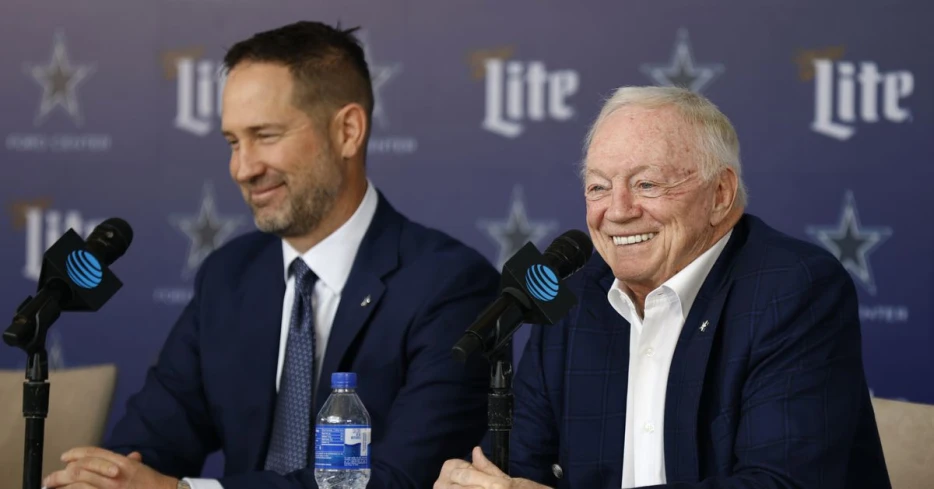
 Blogging The Boys
Blogging The Boys
Not even for Travis Hunter
In just about a month, the Cowboys will draft their next player with the 12th overall selection in the 2025 NFL Draft. That is, if they don’t trade out of that slot before now. Draft trades have become extremely common in the NFL, especially for Dallas, and the prospect of trading up recently became a hypothetical discussion point.
Of course, Travis Hunter is the two-way phenom from Colorado who won this year’s Heisman after playing both wide receiver and cornerback on a full-time basis over the course of his entire college career. He finished this season with 1,258 receiving yards and 15 touchdowns on 96 catches while recording 25 tackles, 11 pass breakups, and four interceptions.
Hunter, the unofficial fourth son of Colorado head coach and Cowboys legend Deion Sanders, has repeatedly stated his desire to continue playing both ways in the NFL. Several draft experts are skeptical, believing his best fit is playing cornerback with occasional packages on offense. Still, many have Hunter as the top prospect in the draft based on his versatility and sheer playmaking ability.
In short, if the Cowboys want to trade up to get him, they probably have to move into the top five, at the very least. As recently as last week, Vegas odds had the Patriots - who pick fourth overall - as the most likely team to take Hunter.
Needless to say, the price tag to move into the top three is going to be steep. A majority of the time, teams only make that kind of move to draft a quarterback, but doing so for a non-quarterback would be questionable, to say the least.
Herein lies the problem with this trade-up suggestion: historical data almost universally tells us that trading up in the first round for a non-quarterback is the wrong move. In fact, economists from the University of Chicago and Yale published a study back in 2006 that found evidence of teams losing value on trading up while gaining value by trading back. This study has been endorsed by recent results nearly every year since.
ESPN’s Seth Walder broke this down last year in a piece that highlighted several fallacies teams use to justify trading up for players. In general, these fallacies come back to outdated trade value charts or teams placing far too much value on the “right to choose” or “get their guy” rather than letting the draft come to them.
To be clear, Walder emphasizes that there is such a thing as a good trade up, but that the typical cost of doing so makes such a scenario very rare:
Yes, it can [make sense to trade up]. To be clear, there is nothing inherently wrong with trading up: in an efficient market trading up, trading down and staying put should all be reasonable options. But because trade-ups are typically not efficient, the easiest way for a trade-up to be palatable is if it is well below market price (and...